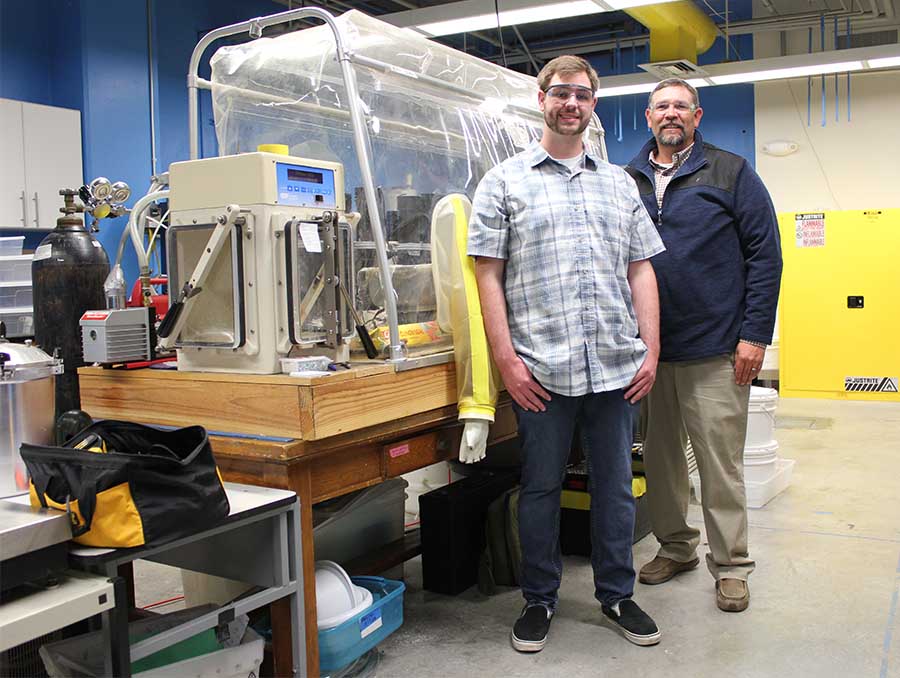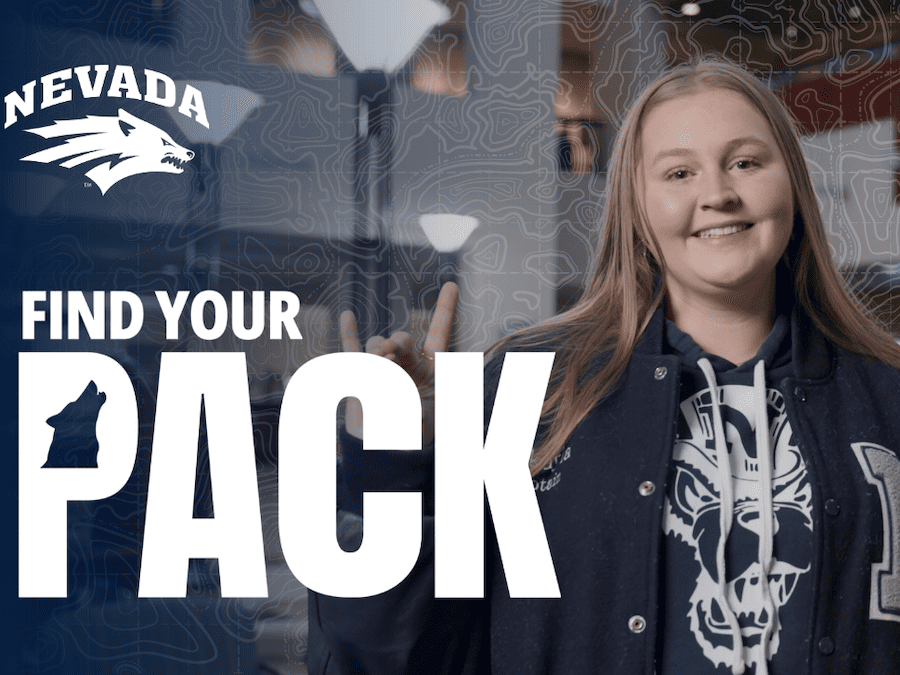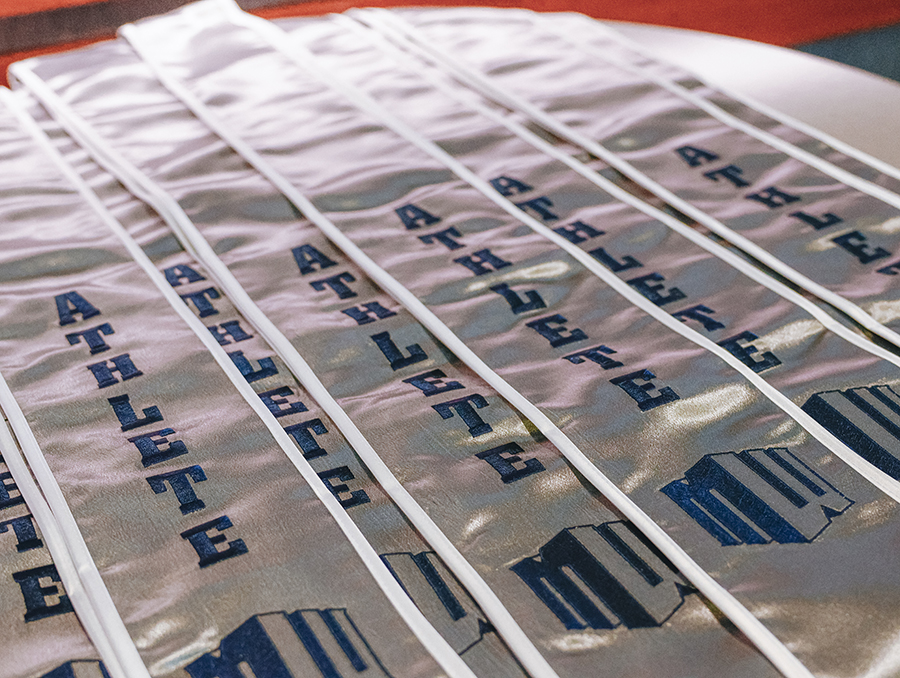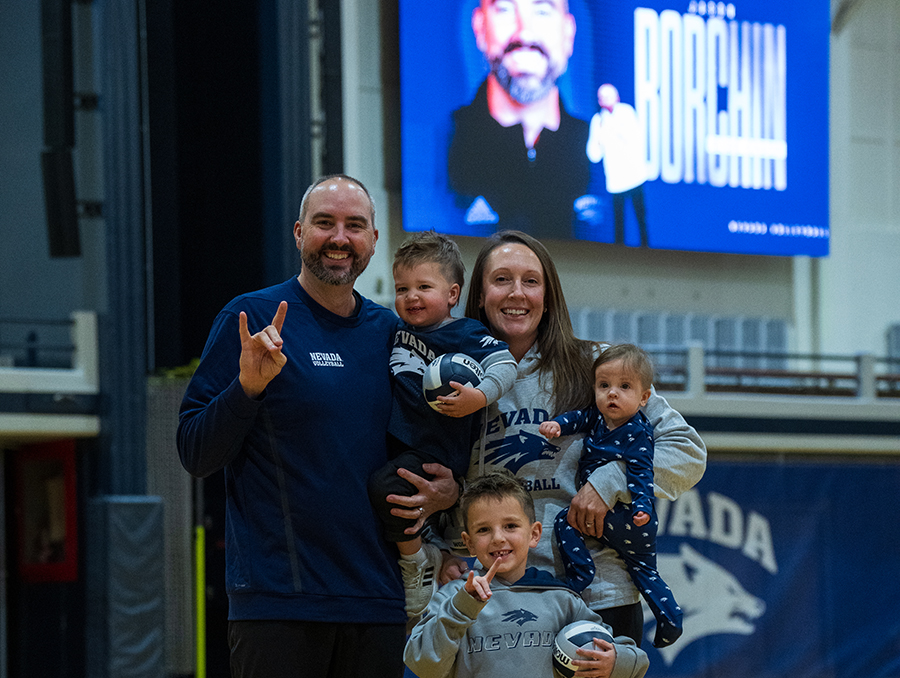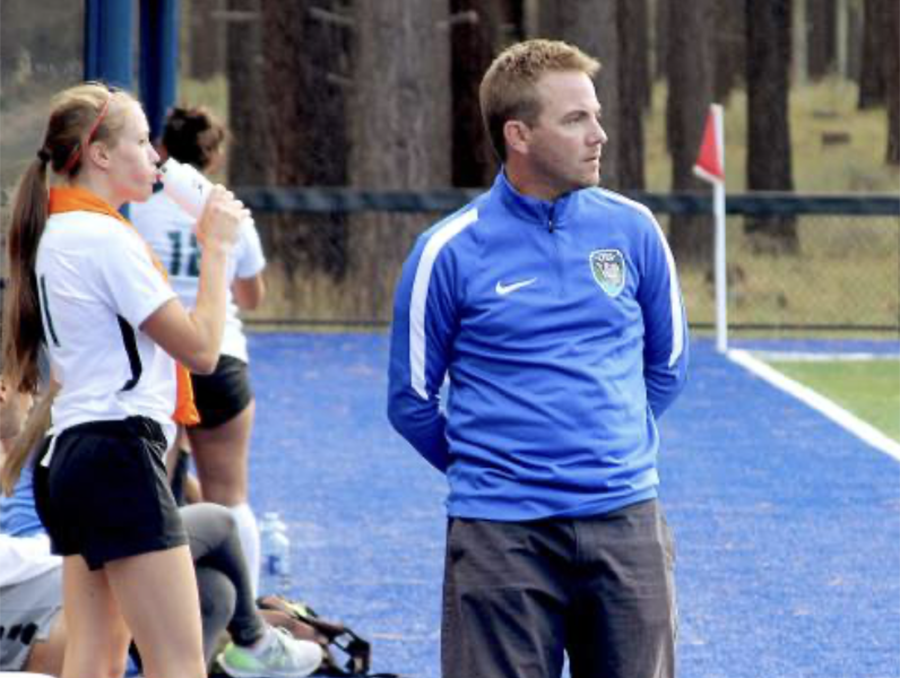Engineering grad student Tommy Kaps is working on solutions to contaminated wastewater, particularly in the area of bioreactors — devices or apparatus in which living organisms break down harmful substances.
“I am interested in creating sustainable solutions to keep sulfates and heavy metals out of the surrounding environment and potential water supplies,” Kaps said.
He started his academic journey in 2019 as a University of Nevada, Reno undergraduate. At the time, he was selected for the College of Engineering’s Creating Retention and Engagement for Academically Talented Engineers (CREATE) program. Launched in 2019 with a $1 million S-STEM grant secured by Engineering Associate Dean Indira Chatterjee and her team, CREATE supported 32 academically talented, low-income students in the STEM fields. Many of the students have graduated — Kaps himself earned his bachelor’s degree last spring — and moved on to industry or, like Kaps, grad school.
How it’s going
Kaps currently is working with Chemical & Materials Engineering Associate Professor Sage Hiibel on wastewater and has begun his master’s thesis, Lab and Pilot-Scale Sulfate Reducing Bioreactors Treating Acid Mine Drainage from an Abandoned Nevada Gold Mine.
“I have installed maintenance and power-free prototype bioreactors containing local bacteria to reduce the acidity and sulfur concentration of the wastewater exiting the mine,” Kaps said. “I monitor the efficiency of the prototype bioreactors and compare the results to a scale model in the lab in order to determine the most effective management system.”
Kaps has been working in this area for a few years, and credits Hiibel with helping him pursue this line of research.
“I have been working with Dr. Sage Hiibel on my current water treatment bioreactor project since I was an undergraduate junior,” Kaps said. “He has provided the opportunity for me to present my research findings at various conferences, such as the national AICHE conference (2022), the NWRA annual conference (2023) and the NAAMLP annual conference (2023), where I was honored to present on the professional level and compete at the student level where I won several awards and scholarships.”
These days, Kaps continues to work in Hiibel’s lab.
"It has been great having Tommy be part of our research team,” Hiibel said. “I have enjoyed watching him grow as a researcher and as a person, and I am happy that he has decided to continue graduate school in my lab.”
“The fact that he not only completed his B.S. but is also working on his M.S. here at UNR is a testament to how amazing the CREATE program has been,” Hiibel continued. “I am grateful to Tommy, as well as Dr. Chatterjee and her team, for letting me be part of it.”
How it started
Kaps entered the University in 2019, a year before COVID would close the campus, and found himself in the first group of CREATE students. He became somewhat of a leader, tutoring fellow students and working as a NevadaFIT mentor to incoming freshman.
“Tommy was chosen via a competitive process as one of the 16 scholars who comprised Cohort 1 of the CREATE program,” Chatterjee said. “This experience enriched his own college experience, allowing him to help other scholars who may have been struggling in their courses. His work as the CREATE tutor was very much appreciated by CREATE scholars who took advantage of his tutoring and study sessions.”
Kaps, in turn, got support from Chatterjee and the CREATE program leaders — especially when the campus closed.
“During the COVID break from in-person classes, Dr. Chatterjee and Dr. (Ann-Marie) Vollstedt helped me get in contact with professors who possibly had openings in their labs,” Kaps said. “I was able to arrange telephone interviews and return to campus for in-person interviews before selecting Dr. Hiibel’s lab. I would not have been able to get in contact or start working with Dr. Hiibel during the COVID chaos without their direction and help.”
Last spring, Kaps earned his bachelor’s degree in chemical engineering with minors in mathematics as well as Batteries and Energy Storage Technologies. It’s an impressive accomplishment, but Kaps gives credit where credit is due.
“If it was not for (Dr. Chatterjee’s) help and encouragement during COVID, I probably would not have been able to graduate with my bachelor’s degree,” Kaps said. “I’ll never forget that when I came off the stage after receiving my bachelor’s. She was there to not only shake my hand, but to joyfully celebrate my achievements.”
